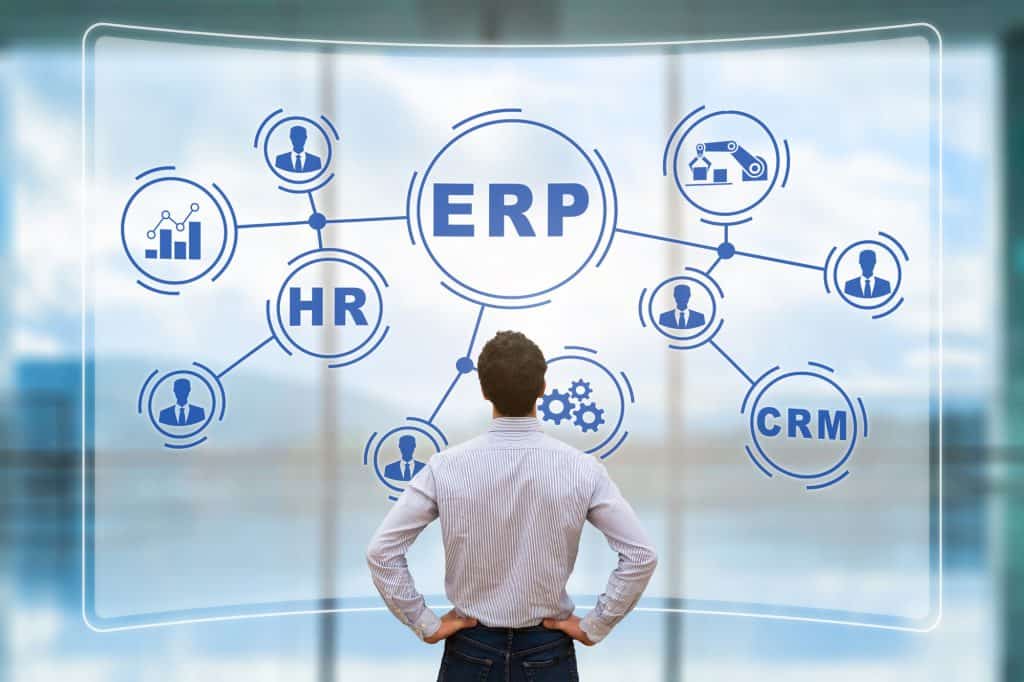
10 Important Factors to Look for When Comparing ERP Systems
Many companies will try and get by with a very basic internal management system when they first start out. When their businesses begin to grow, however, they will end up with a bunch of patch-worked systems that may not work very well together. This can make both system maintenance and daily operations a little difficult to keep up with.
It doesn’t have to be this disorganized, there is a better answer. An ERP system. Here are a few ERP system factors that you should look for to make the switch over.
1. It Should Work with Company Goals
The biggest thing you should consider when choosing an ERP database is will it work with your company’s goals and objectives. The objectives are different for every company but here are a few things for you to consider.
Can you double your business with the resources that you have? Can you eliminate redundancies so that each task will only need to be performed once and multiple tasks can be blended together? Lastly, is it possible to bring your product to the market faster?
2. Functional Requirements
The needs of your business will determine the features that are the most important to you. Pay attention to all of the daily functions your company processes on a regular business day and make a list.
But don’t get that list lost in mountains of paperwork. You need to actually review it. Make sure you do this even if your current process is using an outside system like a spreadsheet or whiteboard.
3. Budget and Resources
Don’t pay extra for features that aren’t needed. The most expensive option is often five times the cost of the least. Some companies do need the advanced functionality that comes with the higher priced option, but don’t automatically assume that you need to have it.
If your criteria aren’t as complex, why should you pay more for functions that you’re not going to use? When shopping around for your system software not only should you look for one that is in your budget but one that will also adapt the best with your company.
4. Reporting
An ERP with built-in reporting will be crucial for your company if you want to stay on top of the latest trends and key performance indicators (KPI).
Good reports can let you know what’s working and if you’re not making the mark when it comes to sales. If you pay attention to it, you can alter your approach to fix the issue.
5. Use a Team that You Trust
When you’re picking a system you will need to think about who on your team will be using it. Who will be good at making the necessary changes to the system when the time inevitably comes for it?
The answer to these questions will be a huge deciding factor for the success of your projects. It’s because of this that you need to make sure the system you choose is easy to use.
It needs to have a functional user interface, but we’ll get into that a little later.
6. Is it Complete
Research the different solutions that the software will offer. Is it possible that you will have to purchase a bunch of point solutions along with the ERP to get it to function the way you want?
The best business management functions should be performed with a simple, integrated end-to-end software system. These are affordable in the long run because it will save you money on development and interfacing.
7. Speed it Takes to Implement
Will you be purchasing your ERP from a reseller, or directly from the company that developed it?
Experts in the software tend to take less time implementing it. You have to do a little more research if you’re buying it from a reseller. Check out reviews and see how they approach implementing and if their projects were delivered on time and on the right budget.
8. Accessibility
For companies who send out their employees out to the field to work, mobility will help you continue feeding information to them.
It’s important to have the ability to access the CRM and the entire software from anywhere to have all of the data up-to-date. You need to be looking for a cloud-based solution when making your choice so your project can keep going anywhere at any time.
9. Hosting
You have to take a step back and not only see how big your company is, but also how strong your internet connection is. Do you have onsite IT support or is it outsourced?
These are the biggest things you need to consider when deciding to host on-site or in the cloud. What might work for one company might not for another.
10. How Good is the User Interface
The ERP database will be helping you manage all aspects of your business, so you’re going to want it to be user-friendly.
A consistent user interface means that it will look and feel the same throughout the system in each module.
This means that you won’t have to learn where everything is each time you use a different part of the software.
ERP System Examples for Your Company
These are a few ERP system examples that you should be looking for when choosing which one will be best for your company. It should be easy to use and go right along with the goals you set out to meet. Every company is different, which means that what might work for one company might not work for yours. Take your time to do your research and find what’s best for you.
If you’re ready to start looking for a system schedule a demo to see how we can fit into your company!
